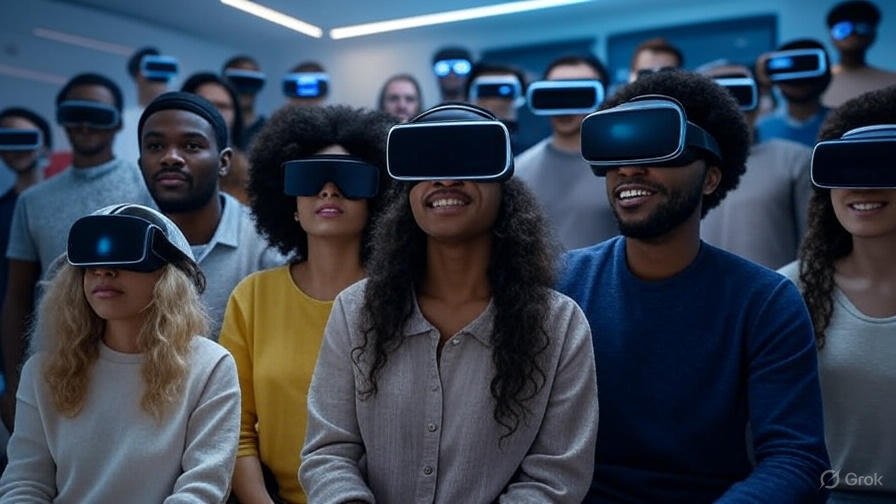In an era where digital platforms dominate daily interactions, a new trend is emerging that blends traditional blogging with the immediacy of social networks. Recent developments show how integrated blogging features on major platforms are transforming content creation and consumption. This shift is not just a passing fad but a significant evolution in how individuals and brands share stories, insights, and news.
A Surge in Platform-Integrated Blogging
Over the past year, several leading social networks have rolled out enhanced blogging tools, allowing users to publish long-form content directly within their ecosystems. For instance, LinkedIn expanded its article publishing feature in early 2025, reporting a 40% increase in user-generated articles compared to the previous year, according to the company’s quarterly report. This move caters to professionals seeking to establish thought leadership without leaving the platform.
Similarly, X (formerly Twitter) introduced “Long Posts” in late 2024, enabling threads to be compiled into cohesive blog-like entries. Data from analytics firm SocialFlow indicates that engagement rates for these extended formats have doubled, drawing in creators who previously relied on external sites. “We’re seeing a democratization of content where anyone can build an audience through in-depth narratives,” said Dr. Elena Vasquez, a digital media expert at Stanford University.
This integration addresses a key pain point: fragmentation. Users no longer need to juggle multiple sites; everything happens in one place. A survey by Pew Research Center released in June 2025 revealed that 62% of online adults prefer consuming content on the same platform where they socialize, highlighting the appeal of these hybrid features.
Historical Context: From Blogs to Social Integration
The concept of blogging dates back to the late 1990s, with platforms like Blogger and WordPress revolutionizing personal publishing. However, as social media rose in the 2010s, traditional blogs faced competition from shorter, more interactive formats like posts and stories. By 2020, many bloggers migrated to Instagram or TikTok for quicker reach, but this often sacrificed depth for virality.
Fast forward to today, and the pendulum is swinging back. The pandemic accelerated online content creation, with millions turning to digital outlets for expression. Platforms responded by merging the best of both worlds. Facebook’s “Notes” revival in 2024, for example, allows users to create formatted articles with multimedia embeds, reminiscent of classic blogging but with built-in social sharing.
Experts attribute this resurgence to algorithm changes favoring meaningful engagement over superficial likes. “Algorithms now prioritize content that keeps users on the platform longer,” explained Mark Thompson, CEO of a content strategy firm in San Francisco. “Long-form pieces encourage deeper interactions, like comments and shares, which boost visibility.”
Impact on Creators and Audiences
For content creators, this means new opportunities. Independent journalists and influencers are leveraging these tools to build loyal followings. Take Sarah Jenkins, a freelance writer who gained 50,000 followers on LinkedIn through her series on remote work trends. “I used to maintain a separate blog, but now I can reach my audience directly where they are,” Jenkins shared in a recent interview.
Audiences benefit too. With content curated by algorithms based on interests, discovering relevant articles becomes seamless. A report from Deloitte in May 2025 noted that 55% of millennials discover news and opinions via social feeds, up from 40% in 2023. This personalization fosters niche communities, from tech enthusiasts to wellness advocates.
However, challenges persist. Concerns over content moderation arise, as platforms struggle to balance free expression with misinformation. In April 2025, a controversy erupted when several extended posts on X were flagged for spreading unverified claims about a political event, prompting calls for stricter guidelines.
Business Implications: Monetization and Branding
Brands are quick to capitalize on this trend. Companies like Nike and Starbucks have launched corporate blogs within Instagram, blending promotional content with storytelling. According to a Forrester Research study, brands using integrated blogging see a 25% higher engagement rate than traditional ads.
Monetization models are evolving as well. Substack-like subscriptions are appearing on social platforms, with Patreon integrations allowing creators to earn from exclusive content. “This could disrupt the ad-heavy model of social media,” suggested analyst Rita Chen from Gartner. “Creators gain financial independence, while platforms retain users through premium features.”
Small businesses, in particular, find value here. A local bakery in Chicago reported tripling its online orders after starting a recipe blog on Facebook, illustrating how accessible tools level the playing field.
Global Perspectives: Adoption Around the World
While the U.S. leads in adoption, other regions are catching up. In India, where social media penetration is high, WhatsApp’s newsletter feature—launched in 2025—has become a hub for community blogs on topics like education and health. A World Bank report highlights how such tools empower underserved populations by providing low-cost publishing options.
In Europe, privacy regulations like GDPR influence development. Platforms must ensure user data in blogs complies with laws, leading to features like anonymized publishing. “It’s a delicate balance between innovation and compliance,” noted EU digital policy advisor Luca Moretti.
Africa’s growing digital scene sees social blogs as tools for activism. During recent elections in Kenya, activists used Twitter’s long posts to document events, bypassing traditional media censorship. This grassroots use underscores the format’s potential for social change.
Technological Advancements Driving the Trend
Behind the scenes, AI plays a pivotal role. Tools like auto-summarization and content recommendation engines make blogging more efficient. OpenAI’s integrations with platforms allow for draft generation, helping non-writers articulate ideas.
Mobile optimization is key, with 70% of social media access via smartphones, per Statista’s 2025 data. Responsive designs ensure blogs look polished on any device, encouraging on-the-go creation and reading.
Multimedia enhancements, such as embedded videos and interactive polls, enrich the experience. “It’s no longer just text; it’s a full multimedia narrative,” said tech blogger Mia Lopez.
Challenges and Ethical Considerations
Despite the positives, issues loom. Algorithmic bias can amplify certain voices while silencing others, leading to echo chambers. A 2025 study by the Brookings Institution warned that without diverse content promotion, social divides could widen.
Intellectual property concerns also arise, with easier sharing increasing plagiarism risks. Platforms are implementing detection tools, but enforcement varies.
Moreover, mental health impacts on creators are under scrutiny. The pressure to produce constant content can lead to burnout, prompting calls for better support systems.
Looking Ahead: The Future Landscape
As we move forward, the fusion of social media and blogging is poised to redefine online discourse. Predictions from futurists suggest virtual reality integrations, where blogs become immersive experiences.
Education sectors are adapting too, with universities incorporating platform blogging into curricula for digital literacy training.
In conclusion, this evolution represents a maturing digital ecosystem, where depth meets connectivity. For those interested in exploring more, resources like the social media blog offer insights into strategies and trends. Whether you’re a creator or consumer, staying informed is key to navigating this dynamic space.
Industry watchers anticipate further innovations, such as blockchain for content ownership. As Dr. Vasquez puts it, “The future is about empowered storytelling in a connected world.” For additional reading on effective content creation, check out this social media blog.




